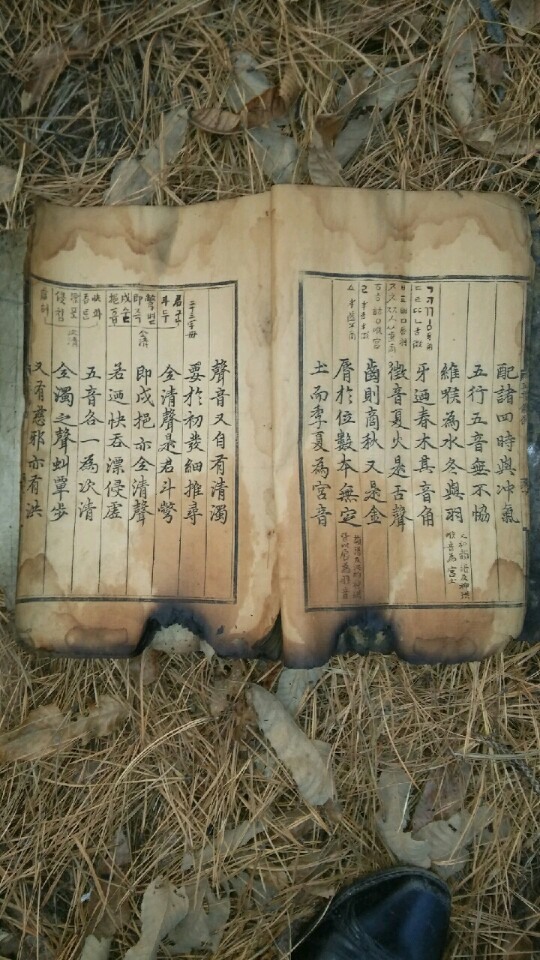Home > Feature
Photo of missing 15th century book on Hangeul released
 |
| A book claimed to be the Sangju edition of the Hunminjeongeum Haerye, an instruction book on Hangeul, the Korean alphabet, is shown in this photo released by Bae Ik-gi on Monday. (Yonhap) |
Bae Ik-gi is running for the National Assembly seat for the Sangju, Gunwi, Uiseong and Cheongsong regions in Wednesday’s election.
Bae, a self-claimed scholar and collector of old books, released a photo of what he claims is the Sangju edition of the Hunminjeongeum Haerye, an instruction book on Hangeul, the Korean alphabet, published in 1446 by King Sejong (1397-1450).
In the photo, the bottom edges of the book are charred, possibly damaged by a fire that broke out in Bae’s house in March 2015.
The National Election Commission previously denied Bae’s attempts to report the book as his property, stating it “could not confirm (Bae’s) possession (of the book).”
“I tried to report the property because I am in possession of the Sangju edition,” said Bae. “If I have to reveal it, now during the re-election is the appropriate time.”
Bae was previously imprisoned on the charge of stealing the Sangju edition from a seller of old books. The Supreme Court found him not guilty in May 2014.
Two editions of the Hunminjeongeum Haerye are known to exist: The Gangsong edition, discovered in Andong and currently held by the Gansong Art and Culture Foundation, and the Sangju edition.
Bae came forward as the owner of the Sangju edition in 2008, stating he would hand it over to the government in return for 100 billion won ($87 million). Since then, the Sangju edition has been caught up in a legal battle surrounding its ownership and has never been revealed to the public.
The Hunminjeongeum Haerye Gansong edition consists of 33 chapters and is designated National Treasure No. 70. In 1997, it was listed in UNESCO’s Memory of the World Program, which safeguards the documentary heritage of humanity.
By Rumy Doo (doo@heraldcorp.com)




























